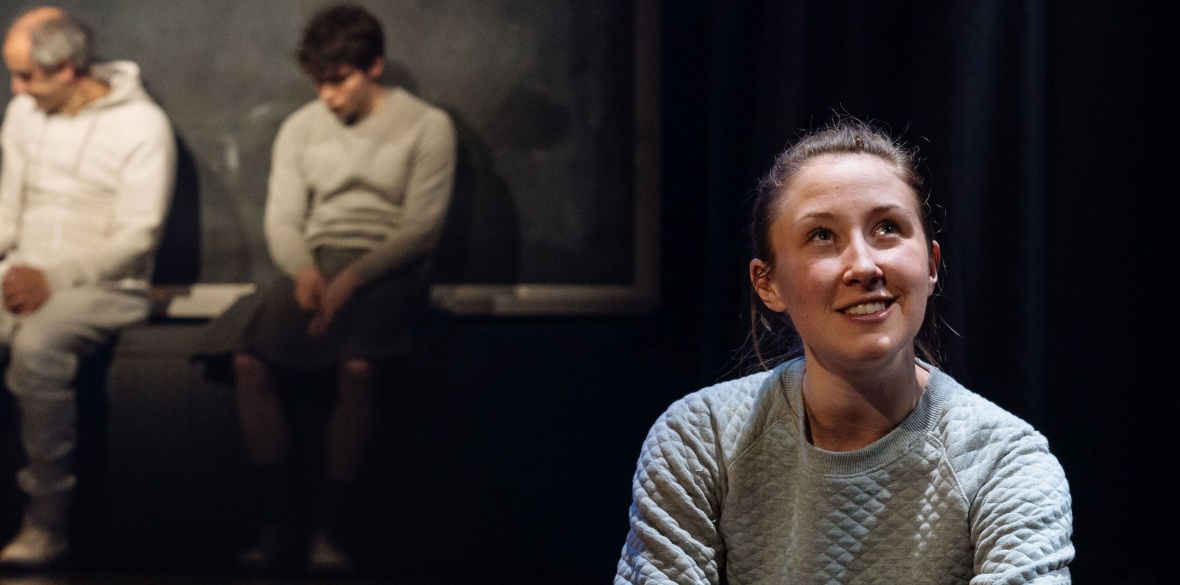This is the last article you can read this month
You can read more article this month
You can read more articles this month
Sorry your limit is up for this month
Reset on:
Please help support the Morning Star by subscribing here
The Divide
The Old Vic, London
YOU'D be forgiven if you walked out of watching Alan Ayckbourn's The Divide vowing never to go to the theatre again.
Cut down from the original six-hour marathon, this four-hour epic dystopian tale, set over 100 years into the future, is full of so many mixed messages and insulting cliches it's hard to grasp Ayckbourn's point.
It's set in a post-apocalyptic society where, following an infectious plague carried by women, the sexes are kept mostly separate. Women live in the south and men in the north, same-sex relationships are the norm, heterosexuality is forbidden and children are the product of artificial insemination.
The protagonist is the child Soween (Erin Doherty, by far the strongest actor in the production) who recounts the history of the divide and her part in its eventual collapse.
She narrates her experiences via diary extracts and letters which tell of her romantic crushes for her friends Axi and the free-spirited Giella and it's a pretty compelling love story. The focus then switches to her teen brother-narrator Elihu, who'll be sent off to live with the men once he turns 18, and his illegal affair with Giella, Soween’s object of affection.
It's sort of like Romeo and Juliet — but a badly written and overly long sci-fi version of it — with an impressive, if incredibly corny, onstage choir.
Elihu and Giella’s relationship is discovered and they are punished for it, while everyone else is disenchanted with the world of the “divide.” Society collapses, leaving Soween to marry her brother’s nice-but-incredibly-dim man friend. By the eventual end, everything returns to 2018.
The main problem with The Divide is not necessarily the length — although it certainly does warrant further cutting — it's more that, while it has the potential to be an interesting dissection of relationships, exploring sexual politics and challenging gender stereotypes, it does the opposite.
It’s almost as if Ayckbourn has thought up a narrative to hit out at gender and relationship categorisation and then backed out 15 minutes in.
It’s not all awful. Laura Hopkins design is striking and stylish, while director Annabel Bolton creates a dark and intense atmosphere, capturing the mood perfectly.
But with its thin plot and underdeveloped characters, the audience is left with no more than a script full of trite lines in a play full of cliched concepts.











